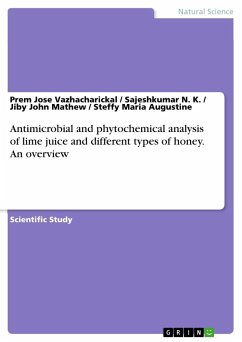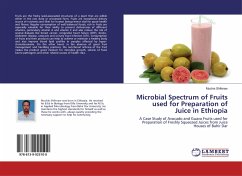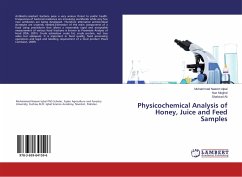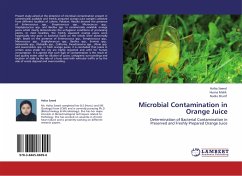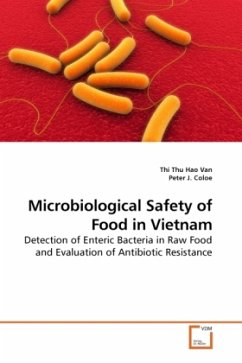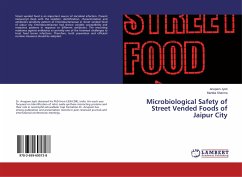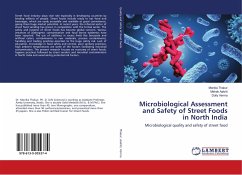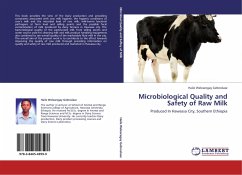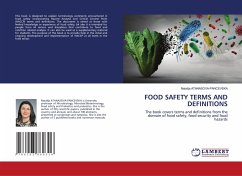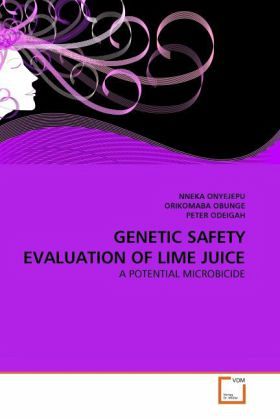
GENETIC SAFETY EVALUATION OF LIME JUICE
A POTENTIAL MICROBICIDE
Versandkostenfrei!
Versandfertig in 6-10 Tagen
32,99 €
inkl. MwSt.

PAYBACK Punkte
16 °P sammeln!
Lime juice is proposed as a potential topical microbicide based on reports that women use it to prevent sexually transmitted infections. This study evaluated the genetic safety of lime juice and its effect on vaginal Lactobacillus species using a modified Ames mutagenicity spot test and agar dilution method respectively. Resultant mutant strains were verified by their phenotypic characteristics. Susceptibility of Lactobacillus jensenii was verified by zones of inhibition. Escherichia coli strain 0157-NMR1 lost the ability to ferment lactose, glucose and unable to produce indole while strain 01...
Lime juice is proposed as a potential topical microbicide based on reports that women use it to prevent sexually transmitted infections. This study evaluated the genetic safety of lime juice and its effect on vaginal Lactobacillus species using a modified Ames mutagenicity spot test and agar dilution method respectively. Resultant mutant strains were verified by their phenotypic characteristics. Susceptibility of Lactobacillus jensenii was verified by zones of inhibition. Escherichia coli strain 0157-NMR1 lost the ability to ferment lactose, glucose and unable to produce indole while strain 0157-NMR2 gained the ability to utilize citrate respectively. The result suggests that lime juice is potentially mutagenic and inhibitory to L. jensenii. This book is an essential for those who have commitment and obligation in HIV prevention and women health and the need for a female controlled HIV prevention option.



